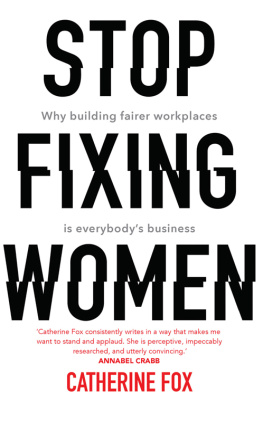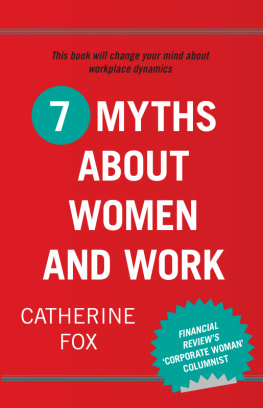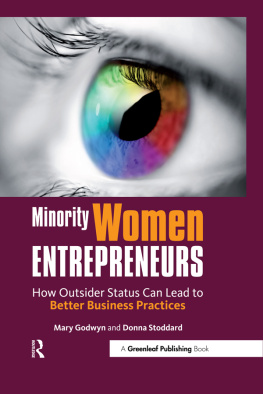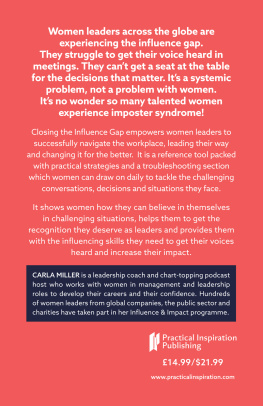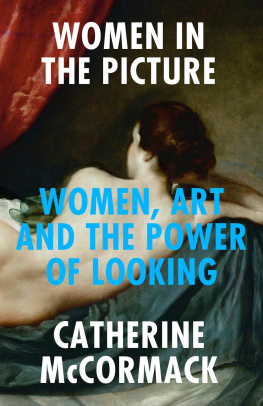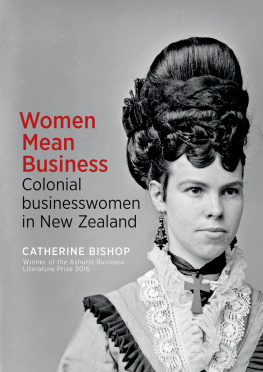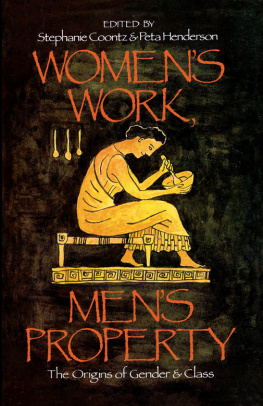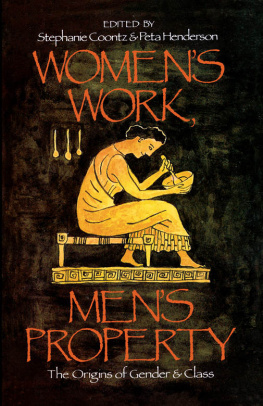
CATHERINE FOX is one of Australias leading commentators on women and the workforce. She wrote the Corporate Woman column for the Australian Financial Review for many years and has written three previous books, including Seven Myths about Women and Work (NewSouth), which was shortlisted for the 2013 Ashurst Business Literature Prize. She helped establish the annual Westpac/Financial Review 100 Women of Influence Awards and is on several advisory boards, including the Australian Defence Force Gender Equality Advisory Board.

To David: for supporting, not fixing.
A NewSouth book
Published by
NewSouth Publishing
University of New South Wales Press Ltd
University of New South Wales
Sydney NSW 2052
AUSTRALIA
newsouthpublishing.com
Catherine Fox 2017
First published 2017
10 9 8 7 6 5 4 3 2 1
This book is copyright. Apart from any fair dealing for the purpose of private study, research, criticism or review, as permitted under the Copyright Act, no part of this book may be reproduced by any process without written permission. Inquiries should be addressed to the publisher.
National Library of Australia
Cataloguing-in-Publication entry
Creator: Fox, Catherine (Catherine Louise), author.
Title: Stop fixing women / Catherine Fox.
ISBN: 9781742235165 (paperback)
9781742242798 (ebook)
9781742248264 (epdf)
Subjects: Womens rights.
Women Employment.
Quality of work life.
Sex discrimination against women.
Gender identity.
Equality.
Design Jo Pajor-Markus
Cover design Alissa Dinallo
Printer Griffin
All reasonable efforts were taken to obtain permission to use copyright material reproduced in this book, but in some cases copyright could not be traced. The author welcomes information in this regard.

This book is printed on paper using fibre supplied from plantation or sustainably managed forests.
Contents
Introduction
I am the generic person. I am a middle-class white man. I have no race, no class, no gender. I am universally generalisable.
MICHAEL KIMMEL
IN 2015, A GROUP OF the corporate elite gathered in the heartland of Sydneys business district to launch another initiative designed to open boardroom doors to more women. It could just as well have been London, New York or Toronto. And in fact this particular program for women was originally launched in the UK.
A panel of distinguished businessmen took to to the stage to discuss why more women were needed on boards, and their support for this program to speed up the process. The conversation went along fairly predictably until a few comments began to make it clear that many of these supporters have deep-seated concerns about the capacity and appetite of women for these sought-after seats at the table. Its a fact that women dont put their hand up for promotions as often as men, said one. Appointing a woman with no listed board experience is a risk, said another, and then quickly rephrased to include anyone without that experience. The woman sitting next to me, a senior executive and director, leant over and whispered, They are blaming us.
She was right, they were. Ive heard so much of this scapegoating and observed the wilful blindness about the other side of the equation the behaviour and attitudes of those who still hold most of the power that even I had become a little desensitised. A few months later I was on stage discussing these issues in front of an audience of mid-career female managers alongside a senior male bureaucrat and a female executive. The man talked convincingly about the need for more women in his workforce but soon began telling the group, who had given up time and money to be there, they needed to think about backing themselves. I could see the Here we go again expressions on many faces. Why would they even be there if they didnt back themselves? I did point out the unhelpful nature of this type of advice, but Im not sure my fellow speaker appreciated it.
Telling women its mostly their own fault for being marginalised in workplaces designed by and for male breadwinners and failing to crack through the glass ceiling and scale the ranks of business reinforces ridiculously outdated gender stereotypes. We used to call this the deficit model, because it rests on the belief that women are naturally deficient in risk taking, assertiveness and courage, while being over-endowed with emotions and caring skills. Many of us, me included, thought this idea had started to disappear, but I think we were wrong. The workplace rhetoric might be more about how men and women have different skills these days, but that hasnt changed the thinking. For different read mostly faulty the Women need fixing message is as strong as ever.
Its illogical too. How can women be both the problem and the solution when they make up just under half the workforce but still a tiny minority of decision makers? As I looked more deeply into this I realised how horribly effective this approach can be in corroding womens status and distracting organisations from taking on the real culprits. And in case a reminder is needed, dismantling inequity is far from some politically correct, feel-good exercise. More equal societies score more highly on just about every economic and social indicator there is, and they are more productive and happier too. There is a clear correlation between gender equality and GDP per capita, the level of economic competitiveness and human development, according to the World Economic Forum.
Compelling stuff, but apparently not a pressing concern for many who have been holding the reins. But it has become much clearer to me through my analysis that the focus on fixing women has also been very handy in allowing men, and particularly powerful men, to stay out of the debate. After all, if womens lack of skills is to blame for them failing to thrive, then its obviously up to them to remedy this deficiency. And its their fault when the latest diversity program doesnt make much difference. But if the bias and unfairness is not only about the personal but the political the way workplaces are run and by whom then the people with power, who are overwhelmingly privileged white middle-aged men, are not just nice to have on side. They are essential to success. They not only have to stand up as advocates but they must change the rules and norms that helped give them a big advantage in getting the keys to the top office.
That uncomfortable realisation is dawning but its a tough grind to challenge the establishment and particularly when youre facing a tsunami of advice that all it takes is fixing women. Theres an industry churning out advice books and consulting services, sometimes produced by women, who also lap up this stuff. Its appealing because it promises a quick fix. And plenty of women get quite tetchy about dismantling the deficit model, and tell me they see evidence of low confidence and poor negotiating skills from women all the time, so isnt it better to arm them with tips to help them?
Well, if women really needed fixing because of their gender, and these tips helped to change the real causes of discrimination, then yes it would be. But I dont think they do, or that packaged remedies have delivered results but I often see them reinforcing the stereotypes that are the problem in the first place. Fans of remedial solutions spend plenty of time promoting research that says women arent feisty enough, but turn a blind eye to the studies (many cited in this book) showing the role of context and socialisation not biology in shaping these responses, and showing that putting the onus on individuals (and only half the workforce at that) to fix major structural problems doesnt work. Many of the commonly quoted pitfalls for women (such as putting a hand up for a job or speaking up at meetings) are exaggerated, but such responses would decline if there were, say, less biased rules and self-fulfilling assumptions about gender. And telling women to essentially behave like men backfires spectacularly and not just for women. Remember the follies of over-confident Masters of the Universe bankers in the lead-up to the global financial crisis? Dismantling the remedial model for women leads us to examine the other side: the pervasive belief that stereotypical masculine behaviour should be the standard for all. Such scrutiny is long overdue.
Next page
